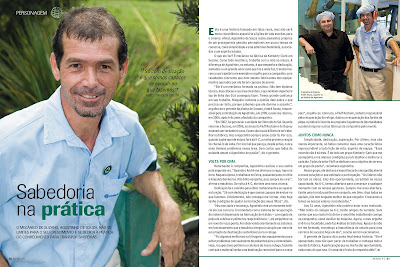Cade allows overseas coordination
by Urika Coimbra
On September 16, the Administrative Council for Economic Defence (Cade) gave its permission for the joint coordination of the activities between Brasil Foods and Sadia overseas. This means the opening of the way for the joint planning of negotiations and the contracting of freight and storage, as well as the offer of brands and volume of products, as long as the operational and commercial structures of both remain as they are today in the overseas market, in a way that does not affect its performance nationally or compromise the reversibility of operations.
As this concerns a Brazilian anti-trust organization, which regulates the competition in the domestic market, the overseas implications are outside Cade’s sphere,” reasons Toni. In respecting the continuation of the conditions which do not interfere with the competitive nature of one of the companies in the domestic market, this authorization is provided under the premise that “the brands continue in the overseas market with volumes similar to those which the two companies have traded in the past, preserving the current performance of Brasil Foods and of Sadia,” explains the General Director of BU Perdix.
The main benefit in starting up this joint coordination overseas is to advance the best management of the businesses by means of a more healthy competition. “The principle gains will be seen in storage, shipping and in the strategic pre-pricing of the products,” says de Toni. Jointly, Brasil Foods and Sadia hold around 24% of Brazilian exports. The amount when joined together will allow more structured activities, with better results and greater chances of development overseas.
Acting through a structure that has been optimized enormously, the trend is that the initial association of the two companies also stimulates new opportunities and investment in professional skill. The next steps include once again studying all the processes, with a focus on the merger of the companies and also on what is intended to be strategically achieved by 2015.
“Today, we already need people to take care of the business which is arising from this merger in the overseas markets. We are paying more attention to people’s skills for what we intend to do in the future than we are in taking into account the synergies in themselves. There is no synergy in fixed costs as both the companies already have structures that are suitable to their sizes. This is the time to think about growth. We need to be extremely efficient in this chain that is so very competitive. This is why the economy of scale is essential,” concludes de Toni.
(Parte final da matéria de capa da próxima Connected. Em breve, PDF completo)





